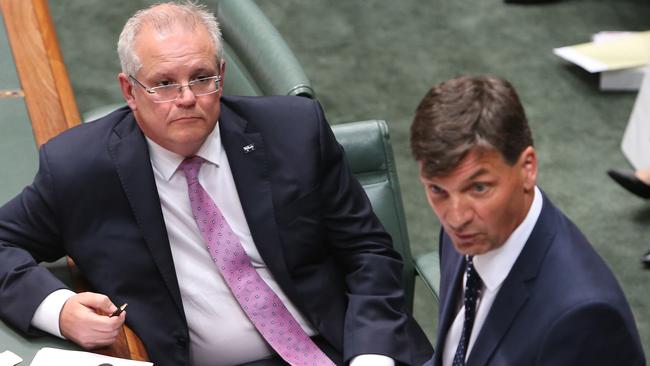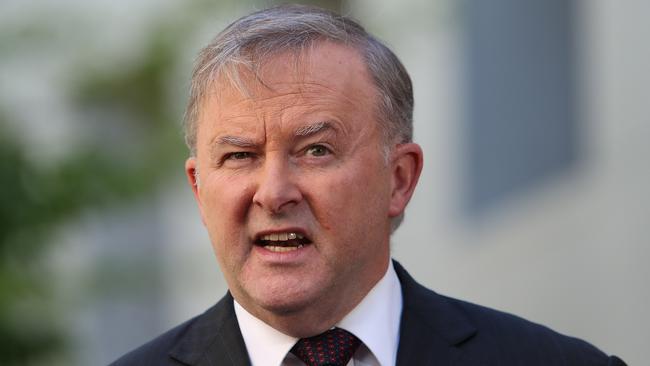
First up, I would hope police commissioners are made of sterner stuff than that – able to be unduly influenced by a call from a politician. Much less one who doesn’t even have indirect responsibility for what he does (the NSW Premier and Police Minister are Fuller’s political bosses).
While Malcolm Turnbull is probably right that the wiser course of action would have been for Morrison not to make the call to Fuller, doing so wasn’t an attempt by the PM to unduly influence the investigation in embattled minister Angus Taylor.
READ MORE: Crossed wires in call to top cop | Trivial, but this could bite Morrison | PM concedes error in Taylor defence | Wheelie true, or plain rubbish?
Let’s face it – if Taylor is ultimately required to stand down because of what the police uncover, that would only be a good thing for Morrison. Taylor has become the ultimate dead weight on the Coalition’s frontbench. An under-performer if ever I’ve seen one. Even if he survives this investigation, he’ll surely be demoted when the next reshuffle comes around anyway.
Labor is even trying to argue that simply because Taylor is under investigation he should therefore stand aside. What an absurd argument. We know straight from the commissioner’s own mouth that the only reason a formal police investigation is under way is because Labor wrote to Fuller requesting one. That would be the shadow attorney general who did that, as he flagged his intention of doing publicly. Mark Dreyfus is like the boy who cried wolf, he’s demanded that many ministers and senior government MPs resign or face a formal investigation.

If that’s enough to force a minister to stand aside, what’s to stop the opposition calling for investigations into any and all ministers they’d simply like to see the back of? It’s crazy logic, which is why it’s not a violation of the ministerial standards for Taylor to continue in his role while the investigation is ongoing.
It’s also hypocritical given the number of times Labor has stood by members of its own team during police investigations. As Morrison rather pointedly noted in Question Time, without naming names, a very senior member of Team Labor was under police investigation over sexual assault claims for months and didn’t stand down. Just as well he didn’t, because the police ultimately found that particular Labor politician had no case to answer.
The PM was taken by surprise in Question Time when told police were investigating the saga of the forged document Taylor used to attack Sydney Lord Mayor Clover Moore. NSW Police had issued a statement confirming they were just minutes before Question Time started. Morrison told the parliament he’d contact the NSW Police and find out what was going on. When he did that, going straight to Fuller, reporting back to the House, Morrison was attacked for doing so.
While I’ve seen plenty of examples of Morrison throwing his weight around since becoming PM, this wasn’t one of them. He knows Fuller personally. They were neighbours. While Fuller yesterday wanted to downplay how well they know each other, Morrison has previously talked about them being mates. I suspect Morrison was over exuberant in such claims – like the kid in the playground we’ve all tried to shake in our youth. Either way, it’s very hard to believe Morrison would call someone he considers a mate to try and bully him. And as I’ve already said, even if he did surely a police commissioner has the intestinal fortitude to stand up to such actions. Besides, Fuller has said publicly he didn’t have a problem with their conversation.
While their proximity to each other made it look that little bit worse that Morrison was happy to fire a quick call through to Fuller – like mates having a chat beyond what might otherwise be considered appropriate – there is no evidence whatsoever to support such an assertion.
Peter van Onselen is Network Ten’s Political Editor and a professor of politics and public policy at the University of Western Australia and Griffith University




Claims that Scott Morrison may have interfered in a police investigation by calling NSW Police Commissioner Mick Fuller are ridiculous.